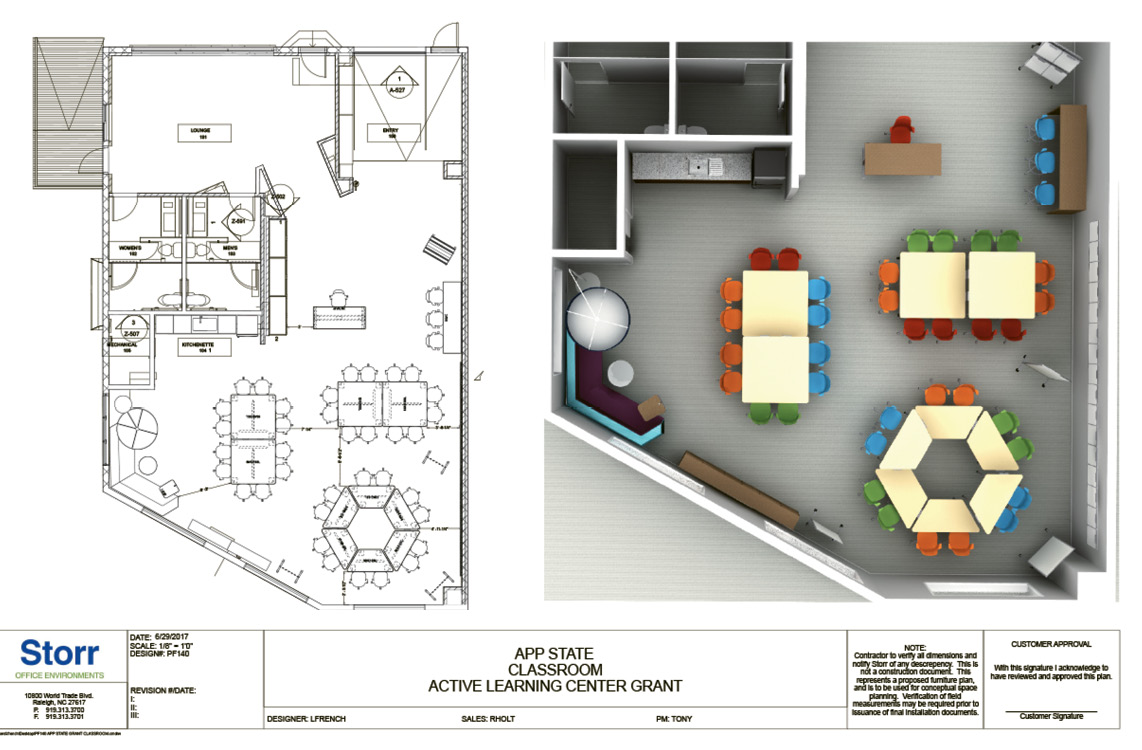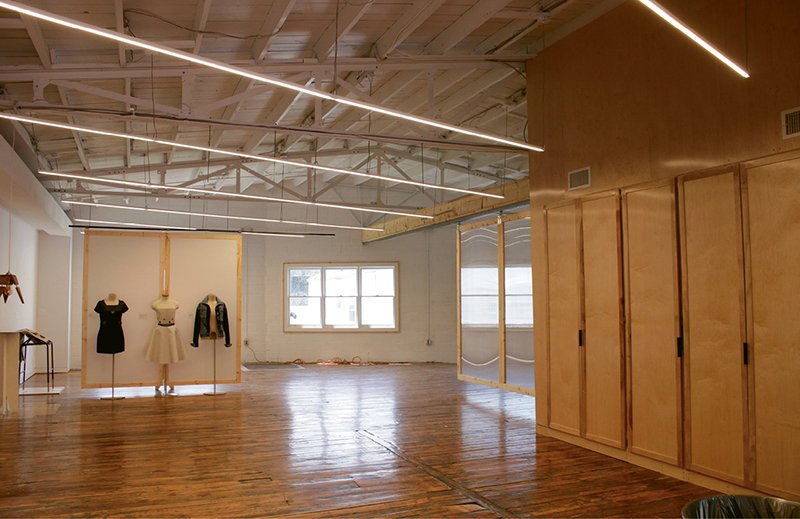Grand Designs
Grand Designs: App State’s new HOW Space is the university’s latest evolution in innovative, interdisciplinary education
“Solving difficult problems—what we call ‘wicked problems’—requires multiple perspectives,” says Assistant Professor of Management Mark Lewis, one of the guiding forces behind Appalachian State University’s newly expanded AppLab program. AppLab is a design-focused learning model that gives students a diverse array of tools for solving complex challenges faced by clients in real-world scenarios. Now, thanks to a $65,000 grant from Steelcase Education, a branch of the Michigan-based furniture company, the program is setting up shop in a brand new home.

Art in Action: While AppLab is moving in this fall, the HOW Space was already put to use last spring for art classes and other gatherings.
Lewis says that AppLab’s approach to learning is more conducive to success in the present-day workforce than ever. “Education has always been organized around disciplinary specialties,” he says, “but the point of AppLab is to bring multiple disciplines together to tackle problems. We show students how to come together to develop a systematic approach to ‘wicked problems.’ Teaching that is not an easy thing to do.”
Now in its third iteration, AppLab has worked with a variety of nonprofit organizations, including the Appalachian Regional Commission, tackling projects involving sustainability, biology, geology, and land use policies. It has also explored the realms of health care, recreation, and education. Recent projects included the creation of educational pocket parks in conjunction with the Middle Fork Greenway project, an initiative created to build a green space from Blowing Rock to Boone, connecting with the Blue Ridge Parkway and other natural attractions.

The new HOW Space in downtown Boone is a multipurpose facility designed and built out by ASU students who, along with faculty and members of the public, will use the space for an array of collaborative projects.
“We’re trying to change education,” says Richard Elaver, Lewis’s AppLab colleague and an associate professor of industrial design at ASU. “AppLab gives students a flexible environment and an ongoing workspace with 24/7 access for solving real-world problems using design-thinking methodologies. Students work together in teams with clients, guided by a multidisciplinary faculty.”
AppLab’s workspace is about to grow, as it moves this fall to the university’s HOW Space—an off-campus design and exhibition center located at 182 Howard Street downtown, that has been built out using the Steelcase funds. According to Lewis, “it’s an environment perfectly suited for the project’s innovative and ever-expanding mission. “We’re emphasizing new ways of thinking in higher education,” he says. “We’re teaching students to break the status quo, to be leaders, to change things for the better.”
